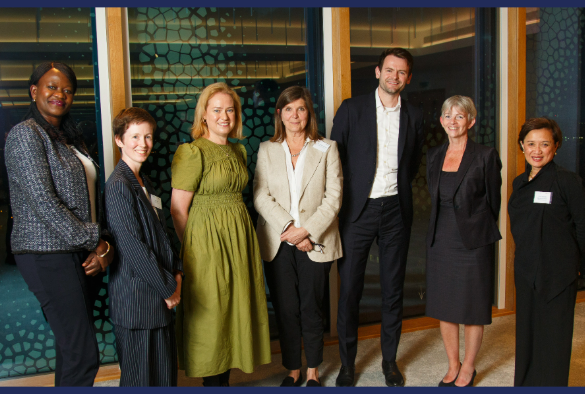University of Liverpool Hosts Public Health MP on Panel Discussing Antimicrobial Resistance
Ahead of next week’s United Nations General Assembly High-level meeting on antimicrobial resistance (AMR), leaders from politics, research, and global health organisations came together to emphasise the urgent need for international collaboration.
The Centres for Antimicrobial Optimisation Network (CAMO-Net) hosted The Drugs Don’t Work: Tackling the Biggest Global Health Crisis of Our Time. Here Andrew Gwynne MP, UK Parliamentary Under-Secretary of State for Public Health and Prevention, delivered a keynote address via video link from Westminster. He announced the UK Government’s renewed focus on AMR, pledging to support research that will tackle the economic and medical challenges posed by antimicrobial resistance. Gwynne said: “This government will lead, not follow. We will fund new research into the economics of AMR, in partnership with the World Organisation for Animal Health, to understand the true cost of this crisis and inform better policy decisions moving forward.”
A global health crisis
Antimicrobial resistance, which currently contributes to almost 5 million deaths globally each year, is a pressing global health threat that, if left unaddressed, could result in up to 10 million deaths annually by 2050. The panel discussion was organised by CAMO-Net’s Liverpool hub based at the University of Liverpool, and the Tony Blair Institute for Global Change (TBI).
Liverpool: a centre of expertise in AMR research
The University of Liverpool’s long-standing expertise in infectious diseases, pharmacology, and data sciences positions it as a global leader in AMR research. Professor Alison Holmes OBE, CAMO-Net lead and the University’s David Price Evans Chair in Global Health and Infectious Diseases, highlighted Liverpool’s innovative contributions to the field: “At the University of Liverpool, we have major programmes of research addressing antimicrobial resistance, ranging from molecular investigations to the social determinants of health.” She emphasised the need for global partnerships, noting that “the breadth and depth of Liverpool’s research is fully integrated with the community and influences populations locally, nationally, and internationally.”
Professor Louise Kenny also emphasised the critical need for support at a national level: “If we want to tackle AMR effectively, we need government backing at scale, not just in funding but in infrastructure and resources. The north of England has the expertise, the innovation, and the will. What we need is the investment to unlock our full potential.”
A panel of global experts
The evening was hosted by former BBC correspondent Naomi Grimley and Ryan Wain, who is the Executive Director of TBI. Featuring an introduction from Professor Alison Holmes, the expert panel also included:
- Kat Lay, The Guardian’s global health correspondent,
- Professor Louise Kenny, Executive Pro-Vice-Chancellor of the Faculty of Health and Life Sciences at the University of Liverpool,
- Dr Janet Midega, Drug Resistant Infections Research Lead at the Wellcome Trust,
- Professor Dato’ Dr Adeeba Kamarulzaman, President & Pro Vice-Chancellor of Monash University in Malaysia.

